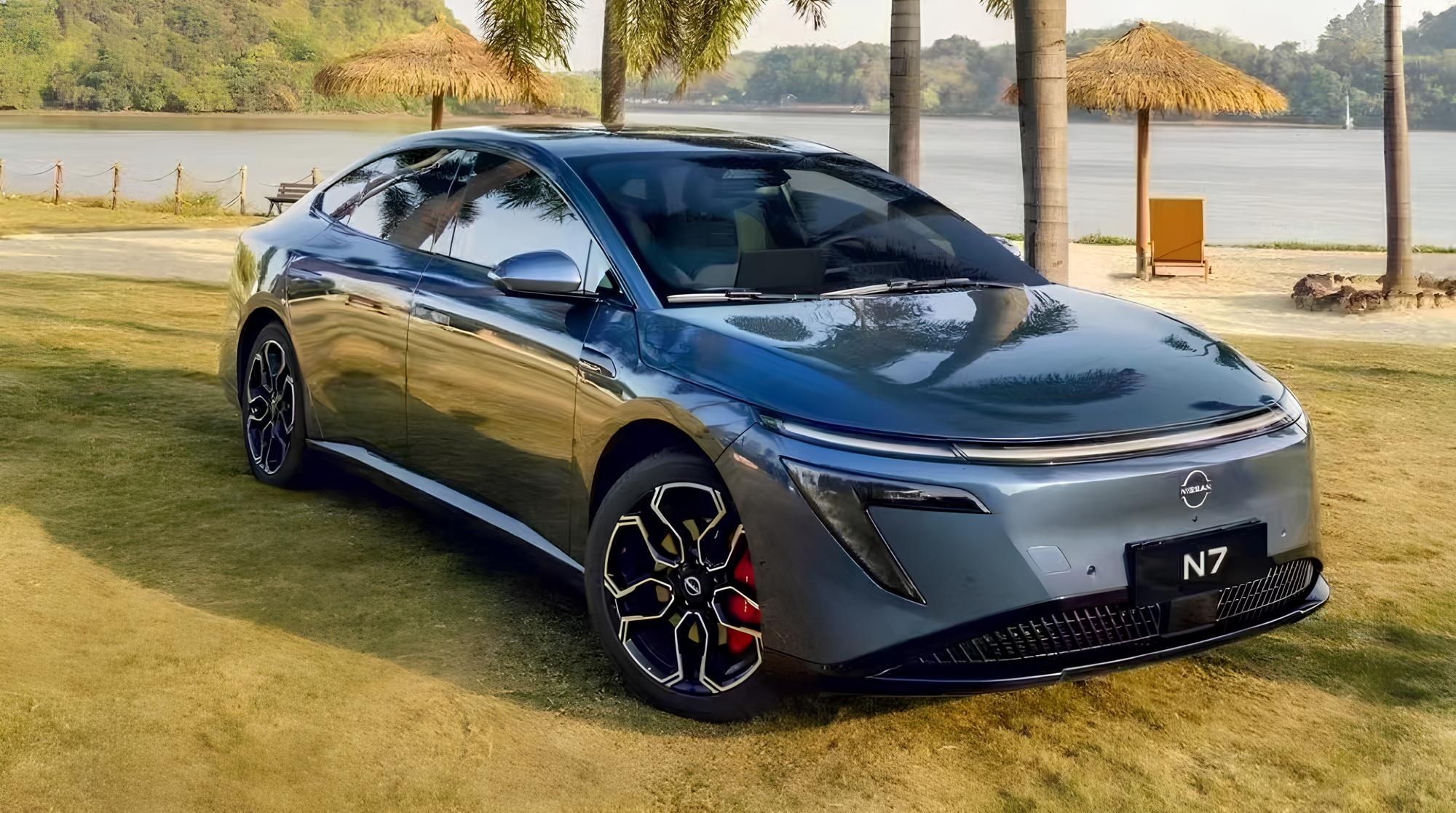Imagine this: a sleek, smart, fully electric car priced under ₹14 lakh (just $16,000). Sounds like a dream, right? But in 2025, Nissan is turning that dream into a reality with its all-new Nissan N7 EV, an ultra-affordable electric vehicle that’s poised to redefine budget mobility across global markets — and possibly in India.
So, what makes the Nissan N7 EV more than just another low-cost electric car? Why is the global buzz around this vehicle growing louder with each passing day? And more importantly, should Indian buyers start paying attention now?
Let’s break it all down.
The Global Launch That’s Turning Heads
Nissan isn’t new to electric mobility. With the Leaf, they pioneered mass-market EVs. But with the N7, they’re changing gears — not just in tech, but in price accessibility and market penetration.
- Launch Price: $16,000 (approx. ₹13.5–14 lakh)
- Range: Estimated 300–320 km on a single charge
- Charging Time: Fast charging capable (0–80% in 40 minutes)
- Seating: Compact 5-seater
- Market Debut: Expected in Europe, Southeast Asia, and North America by mid-2025
What stands out? It’s not just the price. It’s the value-to-performance ratio, sleek design, and the fact that it targets first-time EV buyers and budget-conscious commuters, globally.
Ni la sedan #EV baru, #Nissan #N7. Comeback besar untuk Nissan? #paultancars #paultan #nissann7 pic.twitter.com/yENOmpP8Qb
— Paul Tan's Automotive News (@paultan) April 23, 2025
Why Indian Buyers Should Keep the N7 on Their Radar 🇮🇳
India’s electric vehicle market is heating up. With government incentives, improved infrastructure, and rising fuel prices, EVs are no longer just a luxury alternative — they’re becoming a necessity.
Here’s why the Nissan N7 could be a potential disruptor for India:
Affordability Meets Practicality
Most EVs in India, especially from global brands, still hover above the ₹20 lakh mark. The N7, if launched around ₹14 lakh, could undercut the competition — think Tata Nexon EV, MG Comet, or Citroen eC3.
Perfect for Urban India
With a modest footprint and decent range, the N7 would be ideal for city traffic, office commutes, and short road trips. Compact yet capable — a combo India craves.
Government-Backed Growth
With FAME II subsidies and multiple state-level EV incentives, Nissan could leverage existing schemes to reduce costs further for Indian consumers.
N7 EV vs. Competitors: The Value Comparison
| Feature | Nissan N7 EV | Tata Tiago EV | Citroen eC3 | MG Comet EV |
|---|---|---|---|---|
| Price (ex-showroom) | ₹13.5–14 lakh (est.) | ₹8.69–12.04 lakh | ₹11.61–13 lakh | ₹6.99–9 lakh |
| Claimed Range (km) | 300–320 (est.) | 250–315 | 320 | 230 |
| Fast Charging | Yes (40 min) | Yes | Yes | Yes |
| Seating Capacity | 5 | 5 | 5 | 4 |
| Global Safety Rating | Pending | 4 Star (Global NCAP) | 0 Star (Latin NCAP) | Not Tested |
Verdict: The N7 may not be the cheapest, but it promises international quality with advanced tech and respectable range — and that could win hearts in India’s value-conscious market.
Is It Coming to India? The Big Question
As of now, Nissan hasn’t officially confirmed an India launch. But the signs are promising:
- Nissan has been actively exploring the EV segment in India with its alliance partner Renault.
- India is a key market for affordable EVs with massive untapped potential.
- Growing EV infrastructure in Tier 1 and Tier 2 cities adds to the viability.
If the N7 is launched here, it could set a new benchmark for entry-level electric vehicles in the country.
What Indian Buyers Should Watch Out For
If you’re an EV enthusiast or a buyer on the fence, here’s what you should monitor closely:
- Official Launch Updates from Nissan India
- Government Policy Announcements that can impact EV pricing
- Charging Infrastructure Development in your city
- Subsidy Programs like FAME II and state-level rebates
- Ownership Cost Comparison with ICE vehicles
Final Thoughts: Is the N7 EV the Budget EV India Needs?
If Nissan plays its cards right, the N7 EV could be the perfect middle ground between performance and affordability. For Indian buyers, this could mean access to global-standard electric mobility without breaking the bank.
Would you consider switching to an EV if it came with longer range, fast charging, and global engineering — all under ₹15 lakh? If your answer is yes, then the N7 might just be the EV you’ve been waiting for.
Stay tuned, because 2025 could mark the rise of the most accessible, efficient, and globally loved EV in India.
